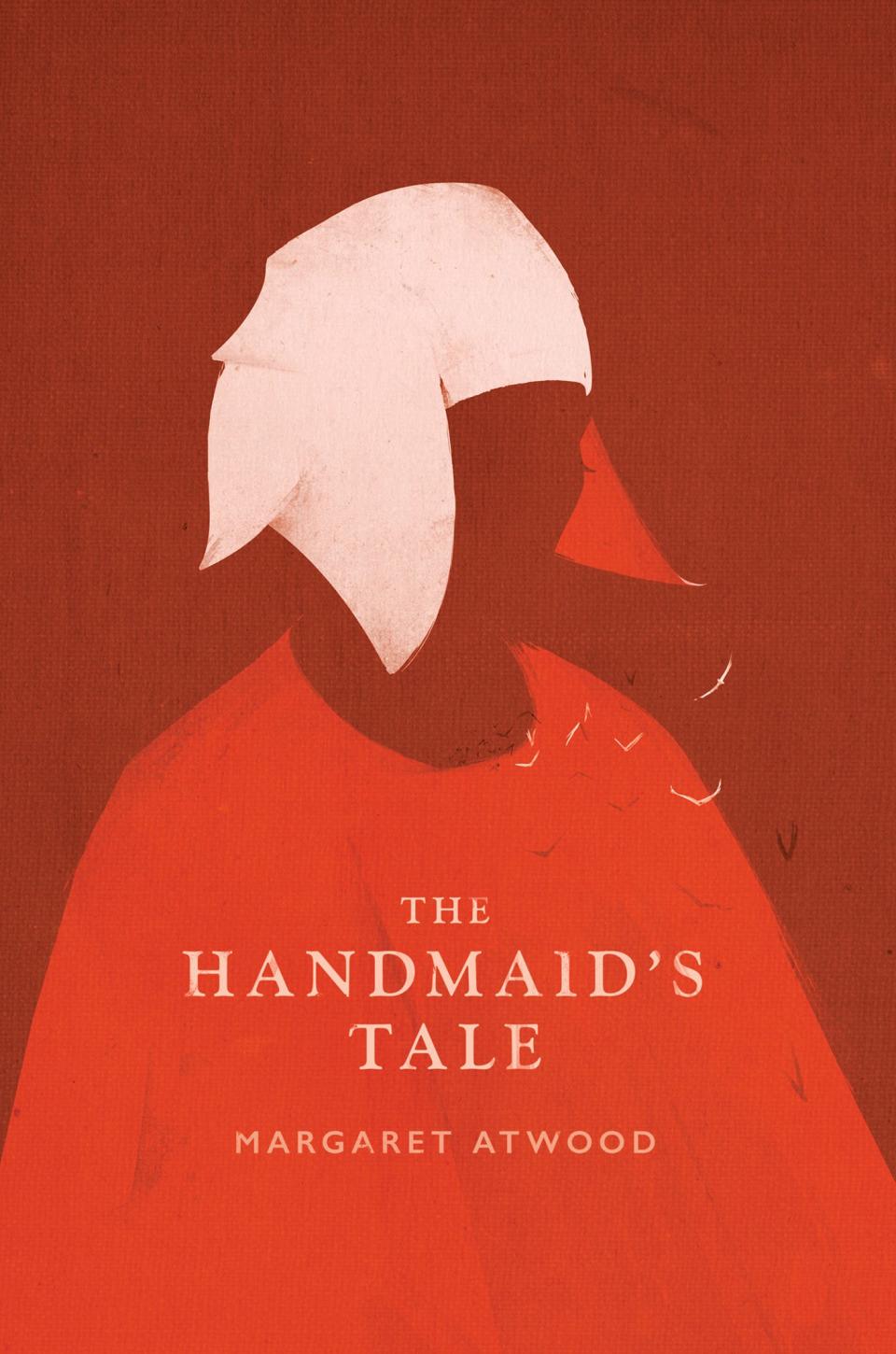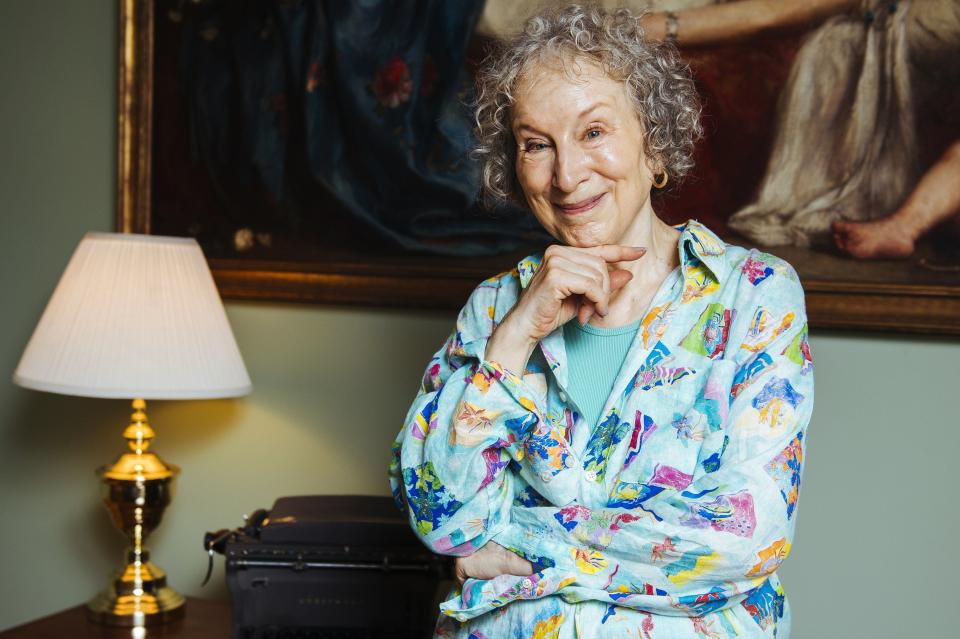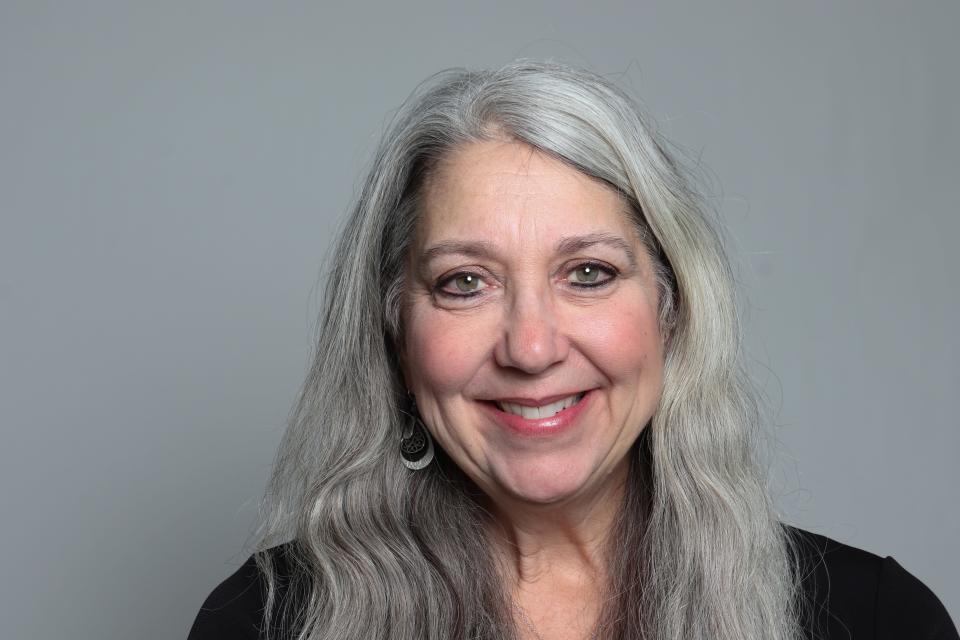'Handmaid's Tale' proves prescient as it's removed from Iowa schools
- Oops!Something went wrong.Please try again later.
At this writing, 19 community school districts in Iowa have removed from their shelves Margaret Atwood’s award-winning dystopian novel, "The Handmaid’s Tale."
That number is likely to go up as more schools across the state review what books are censor-worthy. A judge has, for now, halted enforcement of much of the law that's prompting the schools to act, but the legal battle has a long way to go.
School officials’ banishment of Atwood’s prescient glimpse of the future, published originally in 1985, is ironic on many levels given the themes of the book. But its new absence in Iowa school libraries is the result of school officials doing their best to comply with the Legislature’s vague directive in Senate File 496 last spring to remove access to content that could be deemed “age-inappropriate,” “that describes a sex act,” or that “relates to gender identity or sexual orientation for students in K-6 grades.”
Notably, this particular overreach on the part of Iowa’s GOP supermajority, has already resulted in school districts removing over 450 titles, the works of approximately 300 authors according to a comprehensive database created by Des Moines Register reporters Tim Webber and Samantha Hernandez. At least two major lawsuits are pending to challenge the law.
In her 2017 introduction to "The Handmaid’s Tale" for the Anchor Books edition, Atwood wrote about her effort to make the science fiction of the future she was trying to construct seem as real, and consequently believable, as possible.
Back in 1984, the main premise seemed, even to me, fairly outrageous. Would I be able to persuade readers that the United States of America had suffered a coup that had transformed an erstwhile liberal democracy into a literal-minded theocratic dictatorship? In the book, the Constitution and Congress are no longer: the Republic of Gilead is built on a foundation of the 17th-century Puritan roots that have always lain beneath the modern-day America we thought we knew.
Fairly outrageous, indeed.
For those who have not read "The Handmaid’s Tale," the plot is both complex and straight-forward. It posits what life for women would look like, were a totalitarian patriarchal theocratic regime to replace the United States’ current form of government. Spoiler alert: It ain’t good.
While Gilead’s new leaders in the novel move to immediately cut off women’s access to their own money and remove them from the jobs they held prior to the coup, perhaps one of the more startling changes is to outlaw women’s literacy. Women are forbidden from reading or writing, and if they are discovered doing either, the offense warrants extreme punishment, even death. Removing women’s civil rights, bodily autonomy, and effectively their voices assure the elite males in the novel continued power with limited resistance.
What is censorship, but a sanctioned, organized means of suppressing ideas that challenge, frighten or offend those in power? Muzzling voices that challenge the status quo is obviously nothing new. True to her stated goal not to create any detail of oppression so outlandish as to be unbelievable, Atwood used history to inform how she would deftly dramatize the futuristic silencing of women.
As she well knew, many cultures both historic and modern, have embraced the power of limiting access to information and shutting down completely non-conforming ideas. The fifth-century BCE Athenian court deemed Socrates and his teaching as corrupting influences on the impressionable Greek youth and ordered his execution. China has long managed the content of publications by controlling all publishing houses; thus, the state serves as gatekeeper before dissenting ideas can ever be given voice. Afghanistan’s Taliban currently limits girls and women the right to an education past the sixth grade because it could lead to demands for other rights.

And the United States is far from being an outlier on this issue. The Comstock Act of 1873 made it illegal to disseminate any materials deemed “obscene, lewd, or lascivious” through the mail or across state lines. Who determined what might qualify as “obscene” in that era? Duly elected, morally upright, white men, of course. And in 1873, a woman was considered morally corrupt if she demonstrated even a hint of sexuality. Thus, the Comstock Act completely barred, among other things, any literature that mentioned contraception, sexual health, or abortion. Sound familiar?
In each of the examples, the philosophy appears to be the same: deny public access to problematic information and those in power stay there. The result is, of course, a forced silence.
Advocates of Senate File 496 have argued that removing “age inappropriate” books from school library shelves is not censorship; it is, instead an effort to protect children from trauma and maintain community values. But the U.S. Supreme Court has historically drawn a legal line between unprotected speech (obscenity) and protected speech (that which merely offends). Though Atwood’s vision of the female future in "The Handmaid’s Tale" does depict sexual enslavement, even the current conservative, newly ethics-bound U.S. Supreme Court would be hard-pressed to label it "obscene." It is simply uncomfortable. And that is really the point.

In a close examination of the Des Moines Register’s database of books pulled from Iowa school library shelves, it is noteworthy that nearly two-thirds of the authors in that list identify with she/her pronouns. As Atwood’s dystopian cautionary tale indicates, women’s voices have a long history of addressing the unmentionable truths of our society: personal autonomy, reproductive healthcare, sex, sexuality, rape, intellectual and physical freedom. And these truths are often the ideas censors or those in power seek to silence under the auspices of “protection” and “decency.”
Denying access to sources of information and ideas — even those outside the mainstream — is to actively smother intellectual autonomy. And to do nothing about it ensures a dystopian present. As Atwood’s Handmaid observed: “We lived, as usual, by ignoring. Ignoring isn’t the same as ignorance, you have to work at it. Nothing changes instantaneously: in a gradually heating bathtub you’d be boiled to death before you knew it."

Andrea Frantz is a Storm Lake resident and the Executive Director of the Society for Collegiate Journalists.
This article originally appeared on Des Moines Register: 'Handmaid's Tale' story plays out as Iowa schools remove novel

